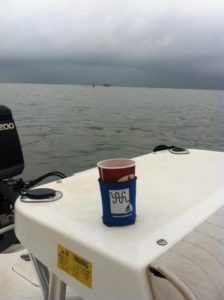
With the dawn of summer and Memorial Day weekend, many people will take to the area lakes and rivers for recreation with family and friends. The increased water traffic will necessarily draw an elevated law enforcement presence. Inevitably, many people will find themselves in the position of being investigated for Boating While Intoxicated.
Is Boating While Intoxicated as serious as Driving While Intoxicated?
Yes, they are equal in seriousness. The Texas Penal Code in section 49.06 says a person commits an offense if they are intoxicated while operating a watercraft. BWI and DWI share the same penalty range and potential collateral consequences. For example, if you have a prior DWI conviction, and get arrested for Boating While Intoxicated, you will be charged with a second offense enhancing the charge and range of punishment from a Class B to a Class A misdemeanor. Or, if you have two prior DWI convictions, and you get arrested for BWI, it will be treated as a third offense, enhancing to a 3rd degree felony,
Can police stop you for any reason on the water?
Yes. Police do not need reasonable suspicion or probable cause to stop you on the water. If you are in a boat, on a jet ski, or other “watercraft” police can make contact at any time to conduct a “safety check”. This is distinguishable from driving a vehicle where courts have found a minimal privacy interest that would require law enforcement to have reasonable suspicion that a crime is or has been committed in order to make contact with you. A side note to this is that the Boating While Intoxicated statute does not require you be in a “public place” like the DWI statute.
Do I perform field sobriety tests on the boat?
No. In Boating While Intoxicated investigations where police conduct field sobriety tests, the suspect will be taken to the shore and given fifteen minutes to regain their “land legs” before any agility exercises will be performed. If police do not follow this regulation, they jeopardize the validity of any results they think might have been observed.
Can I refuse to take a breath or blood test during the BWI investigation?
Yes, and you should. Your driver’s license could still be subject to an administrative suspension like in a DWI case, but we can fight that, too. We will request the separate and independent administrative action and subpoena all the officers involved to testify, under oath, why you were arrested.
Do ‘No Refusal’ policies apply to BWI cases?
Yes, unfortunately. You should expect ‘No Refusal’ to be the norm on all BWI cases. Memorial Day, July 4, and Labor Day weekends for certain will be ‘No Refusal’ but so will a random Tuesday in June. I still believe you should refuse to consent to a breath or blood test in most cases. If the police wish to seek a search warrant, then that’s within their purview of their duties. Sometimes judges will grant the warrants, sometimes they won’t. It is up to the officer to obtain the necessary probable cause. You do not have to give it to them voluntarily.
If you have any questions about a BWI case, or you need legal representation, please don’t hesitate to contact me. The right lawyer can make all the difference. Even if you think there is no chance to win, call me, let me show you what I can do.
